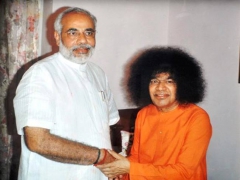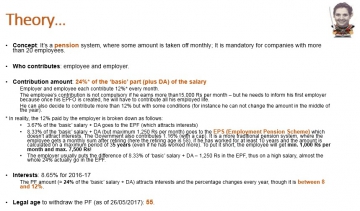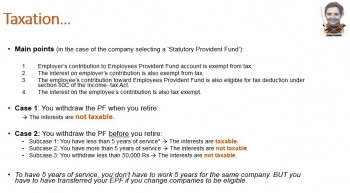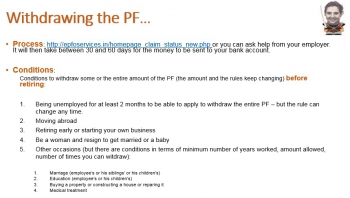08/28/2017
When idolatry makes you blind...
Today, Monday August 28, most of Gurgaon schools are closed. Not because of a heat wave, of heavy rain, of a pollution peak, or of an election, not even because it’s time for the annual bath of the elephant-headed God. No. It’s because a crazy fanatic, self-proclaimed God, is going on trial for rape. So why close the schools? Because his fans are protesting mind you! He was found guilty on Friday of two rapes – and the riots following the news have caused the death of 30 to 40 people – and he is expecting his sentence today.
 This 50 year old man, Ram Rahim, is the head of a sect, Dera Sacha Sauda, based in Haryana and especially present in the North (Haryana, Punjab and Delhi) – it claims to have 60 million followers. People have been blaming him for his poor sense of style and love of jewels which earned him the nickname of “guru of bling”. But most importantly, in addition to dozens of rapes, he might be responsible for the assassination of a journalist who investigated it in 2002, and the castration of 400 of his advisers. On the other hand, his sect runs hospitals and schools, and takes care of supporting his fans living in poverty. Which perhaps explains why even his female groupies are still defending him.
This 50 year old man, Ram Rahim, is the head of a sect, Dera Sacha Sauda, based in Haryana and especially present in the North (Haryana, Punjab and Delhi) – it claims to have 60 million followers. People have been blaming him for his poor sense of style and love of jewels which earned him the nickname of “guru of bling”. But most importantly, in addition to dozens of rapes, he might be responsible for the assassination of a journalist who investigated it in 2002, and the castration of 400 of his advisers. On the other hand, his sect runs hospitals and schools, and takes care of supporting his fans living in poverty. Which perhaps explains why even his female groupies are still defending him.
This country is a little bit crazy!
But you could argue that Madona also has fans who idolize her and would be ready to die for her, so why not worship big fat hairy guys??
Here are some other living gurus who are superstars in India but also outside:
 Baba Ramdev – A yoga master who launched the brand of so-called Ayurvedic consumer products Patanjali (successfully marketed as cheap but quality stuff), an empire that today has a turnover of more than $1.6 billion.
Baba Ramdev – A yoga master who launched the brand of so-called Ayurvedic consumer products Patanjali (successfully marketed as cheap but quality stuff), an empire that today has a turnover of more than $1.6 billion.
 Amma (‘mother’) or Mata Amritanandamayi – The Saint who heals people by hugging them. Make love not war – even though her hugs are nothing sexual. Her fortune is estimated at close to $3 billion (see NYTimes article).
Amma (‘mother’) or Mata Amritanandamayi – The Saint who heals people by hugging them. Make love not war – even though her hugs are nothing sexual. Her fortune is estimated at close to $3 billion (see NYTimes article).
 Sri Sri Ravi Shankar (not to be confused with the musician) – Known for his philosophy of Art of Living, he is believed to have 300 million followers in 151 countries. His fortune is estimated at nearly $2 billion.
Sri Sri Ravi Shankar (not to be confused with the musician) – Known for his philosophy of Art of Living, he is believed to have 300 million followers in 151 countries. His fortune is estimated at nearly $2 billion.
 Bapuji or Asaram Bapu – I had actually never heard of him before (and neither had I head of Ram Rahim) but apparently he is one of the wealthiest, and controversial gurus in India. He has been in jail since 2013 for rape, still awaiting trial.
Bapuji or Asaram Bapu – I had actually never heard of him before (and neither had I head of Ram Rahim) but apparently he is one of the wealthiest, and controversial gurus in India. He has been in jail since 2013 for rape, still awaiting trial.
 Sathya Sai Baba – The guru to the supposedly magical powers died in 2011. He was also accused of rape to several times, without having ever been judged.
Sathya Sai Baba – The guru to the supposedly magical powers died in 2011. He was also accused of rape to several times, without having ever been judged.
It should therefore be noted that: Hinduism is a fertile ground for the worship of gurus; most of them also have trouble with sexuality – possibly due to the fact that they often advocate celibacy, and are in fact unable to resist their urges (but it will be the subject of another article); and the Prime Minister, Modi, often scratches their backs.
08:00 Posted in Funny things about India in photos, Incredible India! | Permalink | Comments (0) | Tags: india, gurus, worshipping, yoga, hinduism, baba ramdev, amma, controversies, rapes, sri sri ravi shankar, bapuji, modi, patanjali | ![]() Facebook | |
Facebook | |
08/21/2017
A glimpse of Chennai
08:04 Posted in Travelling (in India!) | Permalink | Comments (0) | Tags: india, chennai, beach | ![]() Facebook | |
Facebook | |
07/10/2017
Working in India: the Provident Fund
 If you work in India and you get an Indian salary (I mean you are paid in India and in rupees, not that you get a ‘local’ amount), then you should have heard of the Employees’ Provident Fund Act (1952). The Employees’ Provident Fund, or EPF, or PF, is somewhat a pension system, for which both employee and employer contribute – a certain amount is placed every month (1) and earn interests (2), like a normal investment, and this is called the ‘PF account’ (3). You can withdraw the full amount (the invested amount and interests) (4) when you turn 55 and are retiring.
If you work in India and you get an Indian salary (I mean you are paid in India and in rupees, not that you get a ‘local’ amount), then you should have heard of the Employees’ Provident Fund Act (1952). The Employees’ Provident Fund, or EPF, or PF, is somewhat a pension system, for which both employee and employer contribute – a certain amount is placed every month (1) and earn interests (2), like a normal investment, and this is called the ‘PF account’ (3). You can withdraw the full amount (the invested amount and interests) (4) when you turn 55 and are retiring.
Almost all the companies with more than 20 employees must contribute, for others it is voluntary.
(1) The employer contributes 12% of the gross monthly salary (more precisely on the ‘Basic’ plus ‘DA’ knowing this that the wage structure in India looks like this (See the 1st screenshot at the bottom of the page to understand that the full 12% don't actually go towards the PF):
And the employee contributes 12% as well. That said, the contribution on the part of the employee is voluntary: he/her can decide whether to contribute personally if the salary is greater than Rs 15,000 (if it is less than it is mandatory), and he/her can also contribute more than the recommended amount, with certain conditions.
(2) The interest running for the year 2016-17 is 8.65%. It changes from year to year. And these interests are not taxable. The whole EPF (amount and interests) are tax free in fact; though of course it can change.
(3) Since 2014, every employee has a UAN, a Unique Access Number, and a single PF account – before that he had one account with each company for which he had worked – and everything can be tracked online. You can also receive a statement which is annual and available around August-October.
(4) If you change company you can transfer your PF by filling a Form 13 and after something magical happens between the old and the new employer, voilà! Or you can also do it directly online.
You can also withdraw your PF (though I am not sure if all or only part) but you have to wait 2 months before applying and remain unemployed during these 2 months (except if you move abroad or if you are a woman and you need the funds to get married); after that it takes between 30 and 60 days (or so they say). Please note that if you withdraw funds before retiring, the interests are taxable (unless you have worked for the same employer for more than 5 years).
If you change your job and don’t transfer or withdraw your PF, you will continue to earn interest on it up to 55, even if it’s been more than 3 years since you changed your job (this rule changed in 2016).
If the names and birth dates don’t match exactly on the different PF accounts, bank account and PAN account, well, good luck!!
To sum-up:

Useful links:
- UAN PORATL & UAN ACTIVATION Link: https://unifiedportal-mem.epfindia.gov.in/memberinterface/
- MEMBER PASSBOOK Download Link: https://passbook.epfindia.gov.in/MemberPassBook/Login.jsp
- ONLINE TRANSFER EPF Contribution Link: http://memberclaims.epfoservices.in/
- CLAIM STATUS Information Link: http://epfoservices.in/homepage_claim_status_new.php
08:00 | Permalink | Comments (0) | Tags: india, working in india, pension, provident fund, retirement | ![]() Facebook | |
Facebook | |



















